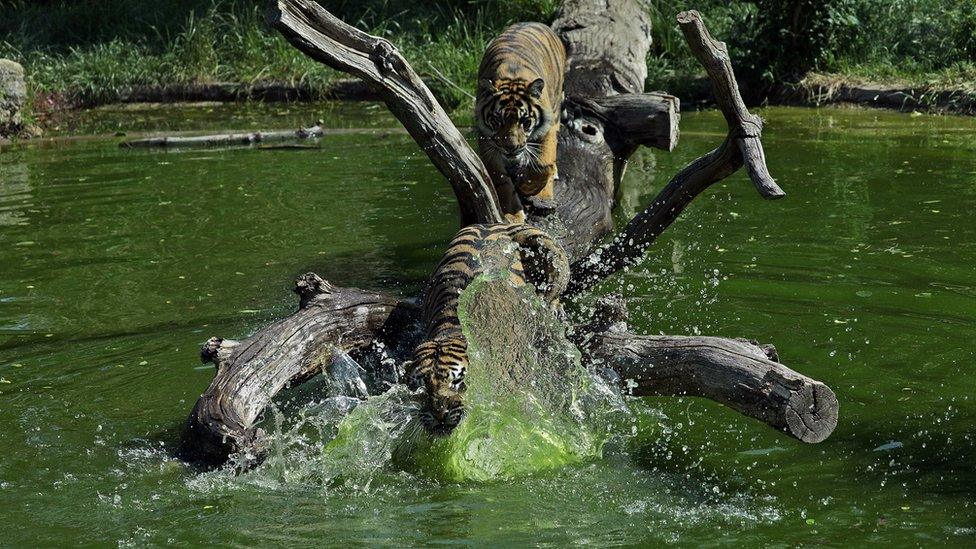London Zoo: Sumatran tiger cubs cool off during heatwave
- Published

It's been very hot weather this week across the UK, especially in the capital London where there critically endangered tiger cubs Zac and Crispin have been taking a splash in their private pool to cool off. Tiger cubs Zac and Crispin have been practising their swimming skills in the cool water, as the weather in London could reach 30C over the next few days.
London Zoo said: “Zac and Crispin only learnt to swim this summer but they’re experts already – they're spending a lot of time splashing around in their pool this week, or lounging around at the water’s edge. It’s been amazing to see.”
Sumatran tigers are critically endangered, with only 300 individuals estimated to be left in the wild. The rare tigers are under threat from illegal hunting and habitat destruction. Different to most felines, these tigers love the water and because of their webbed paws they're good at swimming too.
London Zoo are part of a global breeding programme, where the aim is to increase the numbers of Sumatran tigers and work to protect these tigers in the wild.
The Sumatran tiger is found on the Indonesian island of Sumatra. According to National Geographic, it's the smallest of the tigers, possibly because it would have evolved on this isolated island habitat. Their stripes are closer together and its fur is a darker orange that other species.
There are 14,000 animals at London Zoo so it's not just the tigers that need to cool off. The zookeepers have come up with ideas as the temperatures rise such as frozen fruit, iced lollies and hose-pipe showers.
- Published12 April 2023
- Published26 July 2022
- Published29 July 2020
